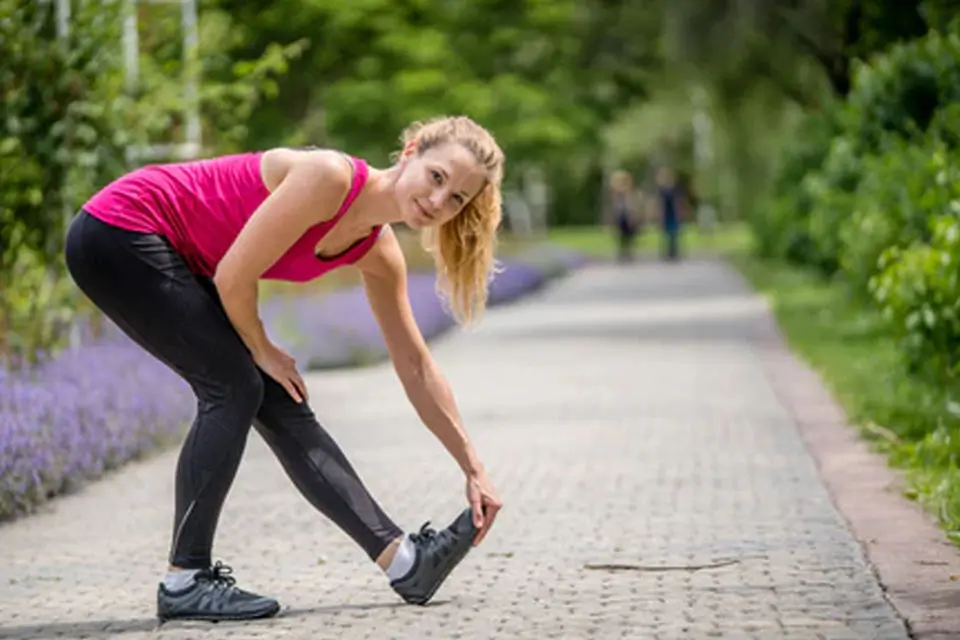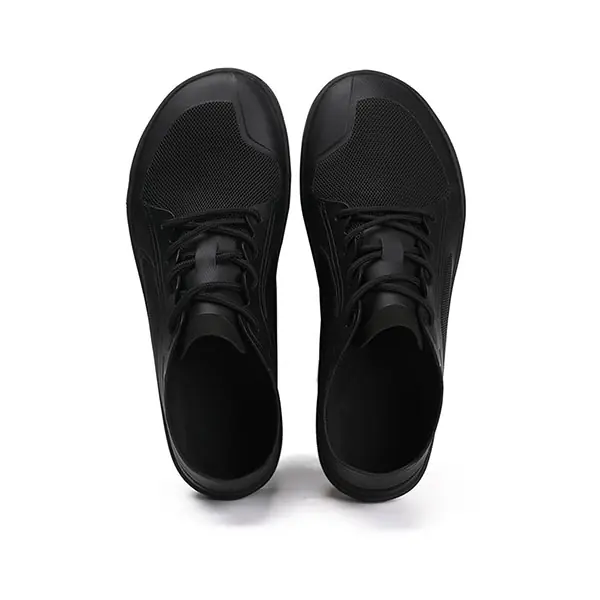
Do Barefoot Shoes Help with Flat Feet
The Best Barefoot Shoes for Flat Feet: Enhance Comfort and Support Naturally
Are you tired of dealing with foot pain and discomfort due to flat feet? Discover how barefoot shoes for flat feet can revolutionize your footwear experience. This comprehensive guide explores the benefits, features, and top recommendations for barefoot shoes that cater specifically to flat-footed individuals. Whether you’re an athlete, a casual walker, or someone seeking daily comfort, this article is your go-to resource for making an informed decision.

Table of Contents
Understanding Flat Feet
Flat feet, or fallen arches, occur when the arch of the foot collapses, allowing the entire sole to touch the ground. This condition can lead to various issues, including foot pain, knee discomfort, and lower back problems. Understanding the mechanics of flat feet is crucial in choosing the right footwear.
People with flat feet often lack the natural arch support, making it essential to select shoes that offer adequate stability without compromising natural movement. Traditional footwear with excessive cushioning and arch support may not always be the best choice, especially when seeking long-term foot health.
What Are Barefoot Shoes?
Barefoot shoes are designed to mimic the experience of walking barefoot while providing minimal protection. They feature a thin sole, a wide toe box, and flexible materials that allow your feet to move more naturally. Unlike traditional shoes, barefoot shoes aim to strengthen the foot muscles and improve overall foot mechanics.
Wearing barefoot shoes encourages a more natural gait, promoting better balance, proprioception, and posture. This type of minimalist footwear is gaining popularity among individuals looking to enhance their foot health and reduce dependence on conventional footwear.
Benefits of Barefoot Shoes for Flat Feet
Strengthening Foot Muscles
Barefoot shoes allow your feet to move naturally, engaging and strengthening the muscles in your feet. This can help alleviate the strain caused by flat feet and improve overall foot function.
Improved Posture and Alignment
Wearing barefoot shoes encourages better posture and body alignment. By promoting a natural walking pattern, these shoes help reduce the risk of knee and back pain associated with flat feet.
Enhanced Balance and Stability
The minimalistic design of barefoot shoes enhances balance and stability. With a closer connection to the ground, you can better sense the terrain, leading to improved coordination and reduced risk of falls.
Reduced Foot Pain
Many users report a significant reduction in foot pain after transitioning to barefoot shoes. The lack of excessive cushioning and support allows for a more natural distribution of pressure across the foot.
Key Features to Look for in Barefoot Shoes
When selecting barefoot shoes for flat feet, consider the following features to ensure optimal comfort and support:
Wide Toe Box
A wide toe box allows your toes to spread naturally, improving stability and reducing strain on the foot.
Thin, Flexible Sole
A thin sole offers better ground feel and flexibility, promoting natural foot movement and strengthening foot muscles.
Zero Drop
Zero drop means there is no height difference between the heel and the forefoot, encouraging a more natural gait and reducing pressure on the arches.
Lightweight Materials
Lightweight materials enhance mobility and reduce fatigue, making barefoot shoes suitable for various activities.
Breathable Fabric
Breathable fabrics keep your feet cool and dry, preventing discomfort and reducing the risk of fungal infections.
How to Transition to Barefoot Shoes
Transitioning from traditional footwear to barefoot shoes requires patience and a gradual approach to avoid potential injuries. Here’s how to make the switch smoothly:
Start Slowly
Begin by wearing your barefoot shoes for short periods, such as 30 minutes a day, to allow your feet to adapt.
Gradual Increase
Gradually increase the duration of wear over several weeks, listening to your body and avoiding overexertion.
Strengthening Exercises
Incorporate foot-strengthening exercises into your routine to enhance muscle resilience and support.
Monitor Comfort
Pay attention to any discomfort or pain, adjusting your transition pace accordingly to ensure a positive experience.
Top Barefoot Shoes for Flat Feet
Choosing the right pair of barefoot shoes can make a significant difference in your comfort and foot health. Here are some top recommendations:
Black Zero Drop Men’s Barefoot Dress Shoes
Perfect for formal occasions, these shoes offer a sleek design with a zero-drop sole, promoting natural foot movement.
Black Zero Drop Men’s Barefoot Dress Shoes
Women Knit Barefoot Fitness Training Shoes
Designed for active women, these shoes provide flexibility and breathability, ideal for workouts and daily wear.
Women Knit Barefoot Fitness Training Shoes
Kid’s Non Lacing Sports Wide Toe Minimalist Sneakers
These sneakers are perfect for children with flat feet, offering a wide toe box and non-lacing design for ease of use.
Kid’s Non Lacing Sports Wide Toe Minimalist Sneakers
Waterproof Minimalist Men’s Barefoot Boots
Ideal for outdoor activities, these boots provide protection and flexibility, ensuring strong and healthy feet.
Waterproof Minimalist Men’s Barefoot Boots
Common Myths About Barefoot Shoes
Barefoot Shoes Lack Support
Contrary to popular belief, barefoot shoes can provide adequate support by encouraging natural foot strength and alignment.
They Are Only for Running
While popular among runners, barefoot shoes are versatile and suitable for various activities, including walking, training, and casual wear.
Transitioning is Painful
With a gradual transition and proper foot strengthening, moving to barefoot shoes can be comfortable and beneficial without significant pain.
Caring for Your Barefoot Shoes
Proper maintenance extends the lifespan of your barefoot shoes and ensures consistent performance. Follow these tips:
Regular Cleaning
Clean your shoes regularly using mild soap and water, avoiding harsh chemicals that may damage the materials.
Drying Properly
Allow your shoes to air dry naturally, away from direct heat sources, to maintain their shape and integrity.
Storage
Store your barefoot shoes in a cool, dry place to prevent mold and odor buildup.
Inspect for Wear and Tear
Regularly inspect your shoes for signs of wear and replace them as needed to maintain optimal support and flexibility.
Comparing Barefoot Shoes to Traditional Footwear
Natural Movement vs. Restricted Motion
Barefoot shoes promote natural foot movement, while traditional footwear often restricts it with rigid structures and excessive cushioning.
Strengthening vs. Dependency
Barefoot shoes encourage the strengthening of foot muscles, reducing dependency on artificial arch support provided by traditional shoes.
Ground Feel vs. Insulation
Barefoot shoes offer better ground feel and sensory feedback, enhancing balance and stability compared to the insulated soles of traditional footwear.
Lightweight vs. Bulky
The lightweight design of barefoot shoes contributes to improved mobility and reduced fatigue, unlike the bulkier traditional shoes that can weigh you down.
Expert Tips for Maintaining Healthy Feet
Regular Foot Exercises
Incorporate exercises that strengthen the foot muscles, such as toe curls and arch lifts, to enhance foot health.
Proper Hygiene
Keep your feet clean and dry to prevent infections and maintain overall foot health.
Listen to Your Body
Pay attention to any signs of discomfort or pain, adjusting your footwear choices and activities accordingly.
Professional Consultation
Consult with a podiatrist or foot specialist to address any specific concerns related to flat feet and footwear choices.
Conclusion: Embrace Natural Foot Movement
Transitioning to barefoot shoes can significantly improve the comfort and health of individuals with flat feet. By allowing your feet to move more naturally, barefoot shoes help strengthen foot muscles, enhance posture, and reduce pain. With the right pair of barefoot shoes, you can enjoy the benefits of healthy, strong feet without compromising on style or functionality.
Key Takeaways
- Flat feet require specific footwear to provide adequate support and promote natural movement.
- Barefoot shoes offer numerous benefits, including muscle strengthening and improved posture.
- Look for features like a wide toe box, thin sole, and zero drop when selecting barefoot shoes.
- Transition gradually to avoid discomfort and allow your feet to adapt.
- Choose from top-rated barefoot shoes tailored for flat feet to enhance comfort and support.
- Understanding myths and proper care can maximize the benefits of barefoot shoes.
Explore our collection of best barefoot shoes for flat feet and take the first step towards healthier, happier feet today!
Internal Links:
